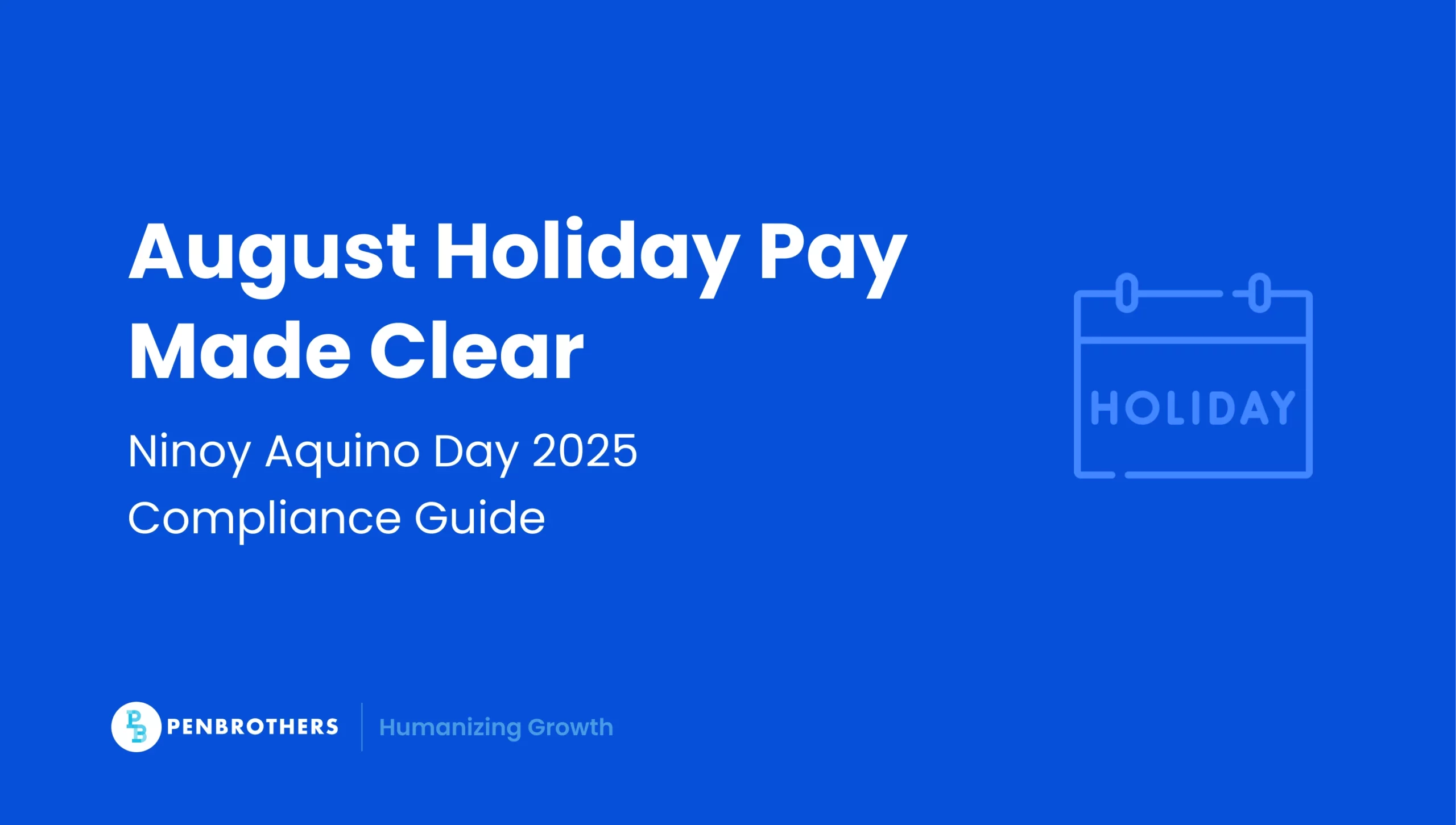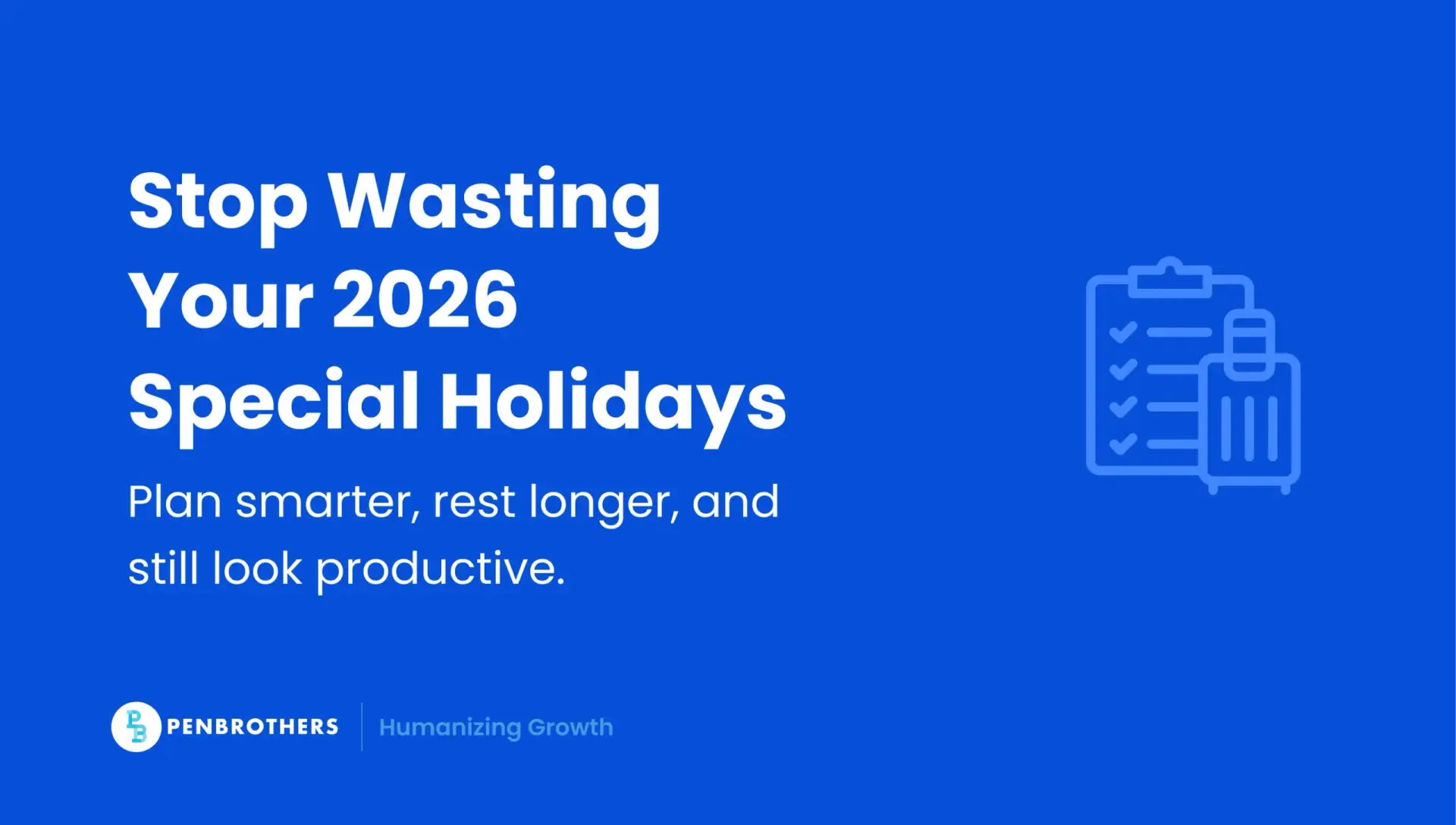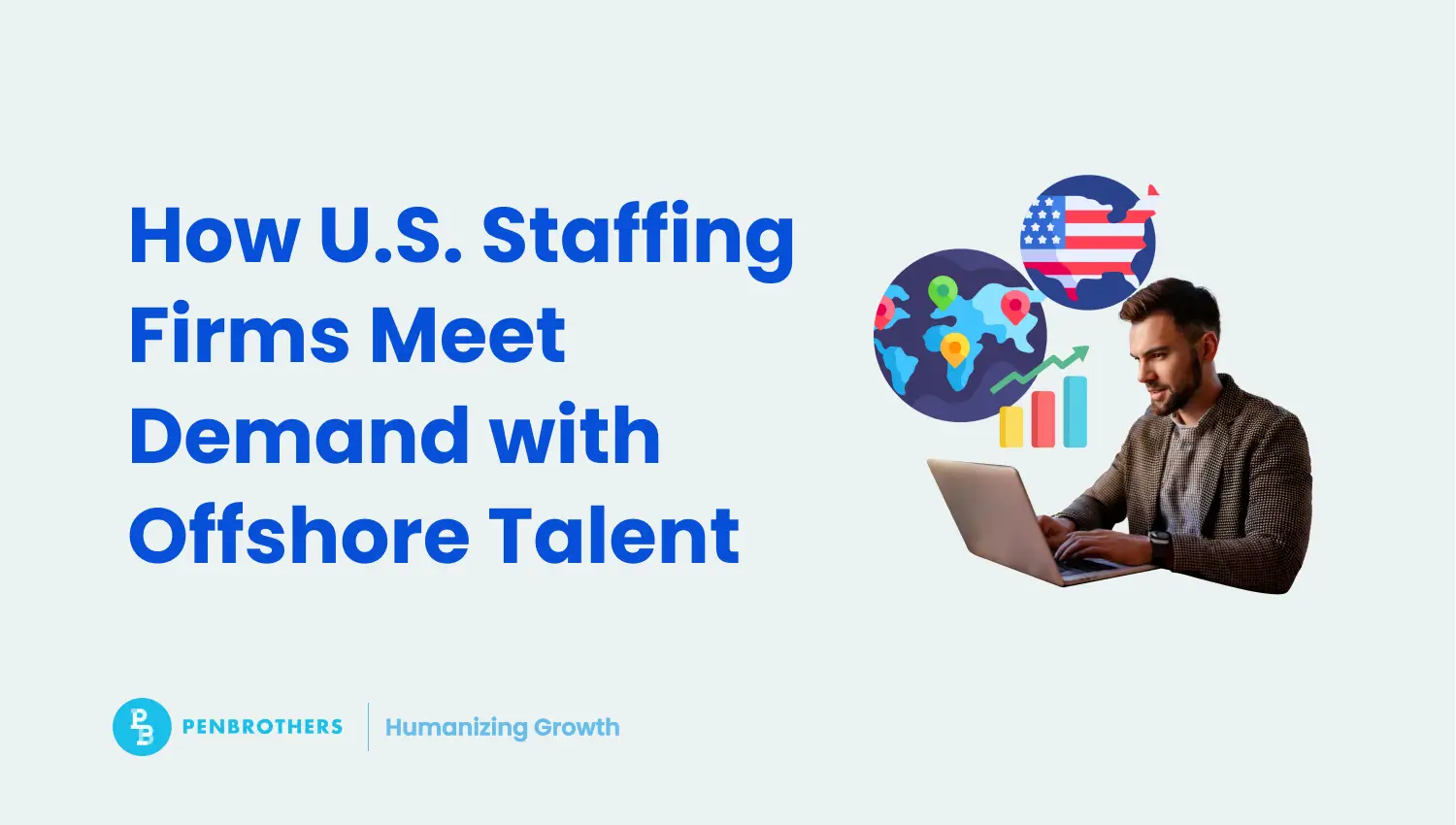What's Inside?
Ninoy Aquino Day 2025: Holiday Pay Rules, Employer Tips, and Official Date

Key Takeaways
- Ninoy Aquino Day 2025 falls on Thursday, August 21, and is a special non-working holiday under RA 9256.
- As per the Labor Advisory No. 11 (2025), the 21st of August 2025 is a holiday and would not be moved, unlike in 2024.
- DOLE pay rules apply differently based on employee classification and work status.
- Employers should prepare for all scenarios: work, no work, rest day work, and overtime.
- Freelancers and remote workers may not be automatically entitled to holiday pay. Contractual clarity is key.
- Partnering with a workforce solutions provider like Penbrothers helps ensure year-round compliance, especially during sensitive payroll periods.
In the Philippines, national holidays often come with uncertainties, especially when proclamations shift observance dates or when employers struggle to align payroll and scheduling. This annual August observance of Ninoy Aquino Day regularly prompts questions. Is it a regular holiday? Are employees entitled to pay? Will the date change again this year?
In this guide, we’ll walk you through everything you need to know about Benigno Aquino Day 2025, how it impacts your payroll or pay slip, and what to do next, whether you’re managing a team or working full-time, project-based, or remotely.
Is August 21 a Declared Holiday?
Yes, August 21 is recognized as Ninoy Aquino Day, a special non-working holiday declared under Republic Act No. 9256.
In 2025, it falls on a Thursday. There is an official proclamation that the observance falls on the same date this year. This means businesses should plan for reduced operations or adjust schedules around August 21.
Employers are strongly encouraged to monitor announcements from Malacañang or the Official Gazette in case a “holiday economics” proclamation shifts the observance to the nearest Friday. This happened in 2024, when the holiday was moved to August 23 via Proclamation No. 665 to create a long weekend.
Why Is August 23 a Holiday?
In 2024, August 23 was declared a holiday, not because of its own significance, but because the government moved the Ninoy Aquino Day observance from August 21 (from Wednesday to Friday) in accordance with holiday economics, aiming to lengthen the weekend break.
This precedent raises questions for 2025. While August 23, 2025 (Saturday) is not currently a holiday, the government may issue a similar proclamation closer to the date.
For employers, this means preparing early:
- Avoid locking in August schedules until a final proclamation is issued.
- Plan for scenarios where operations or shift coverage may be affected by a sudden change.
- Consider front-loading payroll computation for both August 21 and 23 to avoid errors.
What Holiday Is on August 21 and August 28?
These two dates are often confused, so let’s clarify:
| Date | Holiday Name | Type | Labor Impact |
| August 21 | Ninoy Aquino Day | Special Non-Working | Holiday pay |
| August 25* | National Heroes Day | Regular Holiday | Full holiday pay |
*National Heroes Day in 2025 falls on a weekday, so holiday pay is highly anticipated.
Why this matters:
- The difference between special non-working and regular holidays lies in how pay is computed.
- Misclassification or misapplication of these rules can expose employers to labor complaints and incorrect payouts.
Holiday Pay Computation Guide for August 21, 2025
The Department of Labor and Employment (DOLE) classifies Ninoy Aquino Day as a special non-working holiday. Here’s what that means:
DOLE Holiday Pay Rules (Special Non-Working Day):
| Work Scenario | Pay Rule | Example (₱1,000 Daily Rate) |
| Not worked | No pay (unless company policy says otherwise) | ₱0 |
| Worked (first 8 hours) | +30% of basic rate | ₱1,300 |
| Overtime (beyond 8 hours) | Additional 30% of hourly rate | ₱1,300 + OT x 1.3 |
| Worked on rest day + holiday | +30% + 20% = 150% of basic rate | ₱1,500 |
Compliance Tip for Employers:
Even if your company’s policy is “no work, no pay,” be aware that some collective bargaining agreements or contracts may override this. Always review signed agreements before finalizing payroll.
Does Holiday Pay Apply to Remote, Freelance, or Project-Based Workers?
This is a key area many holiday articles overlook.
DOLE holiday pay rules are designed primarily for employees in an employer-employee relationship. This includes:
- Regular employees
- Probationary workers
- Fixed-term employees under standard contracts
Who may not be covered:
- Freelancers
- Independent contractors
- Gig or platform workers
- Remote workers hired without formal employment contracts
What employers should do:
- If you manage a remote or hybrid workforce, clarify holiday observance in contracts.
- Set expectations for work hours and holiday compensation, especially for roles that follow international calendars.
For Employees: If you’re unsure whether you’re entitled to holiday pay, check your contract. It should explicitly mention compliance with Philippine labor laws or DOLE mandates.
Preparing for Payroll and Scheduling: August Holiday Checklist for Employers
Whether or not the holiday is moved, August is a crucial month to get payroll right. Here’s a short checklist:
- Confirm whether your payroll system reflects holiday premium rules.
- Notify employees early about the official announcement of the August 21 holiday.
- Prepare contingency schedules for long weekends or shifted observance dates.
- Review contracts of project-based or hybrid workers for holiday coverage language.
- Monitor Malacañang announcements to respond quickly to any date changes.
How Penbrothers Helps Employers Stay Compliant During Holiday Seasons
For companies managing teams in the Philippines, especially global employers operating remotely, compliance during local holidays isn’t always straightforward. Misaligned calendars, unclear worker classifications, or outdated contracts can cause confusion and financial risk.
Penbrothers solves this by:
- Managing compliant payroll processing based on the latest DOLE mandates
- Providing contract clarity for remote, project-based, or freelance roles
- Offering proactive holiday advisories, so you’re never caught off guard by a proclamation
- Helping you build flexible work schedules aligned with both local laws and global business needs
With our support, you don’t just pay people. You protect them, and your business.
*This article was crafted with the support of AI and refined by a human editor in collaboration with human subject matter experts.





